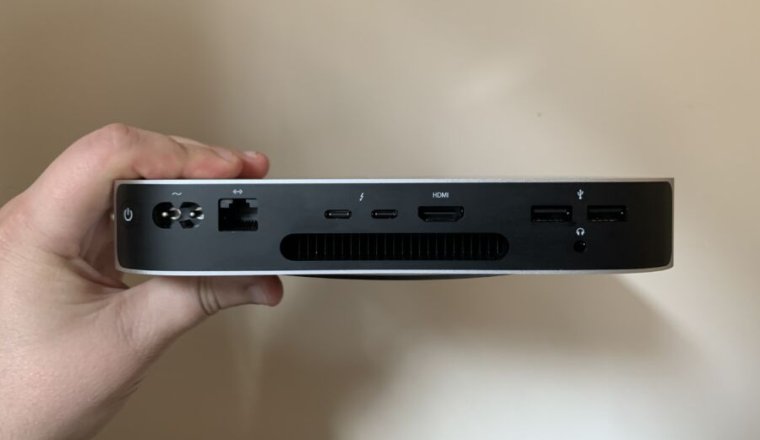
Beeper’s Android app, which initially promised iMessage support with just a phone number, lost that connection once Apple started openly pushing back on it less than a week after it launched. Beeper has kept revising its approach, and its newest method—involving regular access to a physical Mac—suggests why the company has added a political component to its efforts.
Beeper started pushing back after its initial blockage, both through continued development and through media and political messaging. After a second, if smaller, Apple crackdown, co-founder Eric Migicovsky welcomed CBS Mornings into his garage, where he advanced his argument that Beeper was turning grossly insecure SMS messages between iPhone and Android users into secure, end-to-end encrypted chats. (CBS also interviewed James Gill, the 16-year-old whose work connecting to iMessage, using reverse-engineering methods, is the foundation of Beeper’s iMessage tech).
That interview lined up with another development: a bi-partisan foursome of US lawmakers, including Sen. Amy Klobuchar (D-Minn.), sending a letter to the Department of Justice regarding “Apple’s potential anti-competitive treatment of the Beeper Mini messaging application.” Apple’s actions toward Beeper, the letter suggests, could “eliminate choices for consumers,” “discourage future innovation and investment” in messaging, and make Apple a “digital gatekeeper,” suggesting a need for review by the DOJ’s Antitrust Division.
The move follows, and seems to echo, similar efforts by European Union regulators to open up iMessage, which have been stalled so far. Apple has announced that it will adopt RCS standards for SMS messaging, bringing delivery status and higher-quality media to messages between Android and iPhone users. But Apple is adopting a general RCS standard, not one with end-to-end encryption enabled, such as with Google’s own extension of RCS.
As of Sunday, more than 60 percent of Beeper users still couldn’t access iMessage, according to Beeper status updates. Today, Migicovsky told Beeper users (and a “Beeper Team” member posted on Reddit) that there was a solution, though it requires “access to a Mac computer,” or “a friend on Beeper with a Mac.” The updated workaround is due to arrive on Wednesday.
Beeper says that the issue involves the need for non-identifying “registration data” to access iMessage. Beeper had been using “our own fleet of Mac servers” to provide that data. “Unfortunately, this has proven to be an easy target for Apple because thousands of Beeper users were using the same registration data,” Migicovsky wrote users.
The updated Beeper app for Mac will allow for pulling a real Mac’s registration data, for both desktop and Android apps, and perhaps even sharing it with a small number of Beeper users. “In our testing, 10-20 iMessage users can safely use the same registration data,” Migicovsky wrote. He added that Beeper will be open-sourcing its full iMessage bridge, along with the Mac app code that generates registration data, which should provide a self-hosting option.
You’ll need occasional, if regular, access to that Mac running Beeper, however, as “roughly once per week or month” the data needs to be re-generated.
That kind of requirement, besides limiting a big part of its market to “Android users who also happen to have a Mac,” pushes Beeper even further into a kind of uncanny valley for providing iMessage support to non-Apple hardware. Being able to sometimes send secure, feature-rich iMessages, but occasionally losing access due to Apple’s stated intent to stop it, is a tough sell, even if Beeper isn’t charging at the moment.
That might explain why the company is looking to Congress, and user outcry, for alternate routes into iMessage.
This post was updated at 5:30 p.m. on Dec. 19 to add context regarding Apple’s adoption of RCS, but not end-to-end encryption for RCS messages.
https://arstechnica.com/?p=1992070

